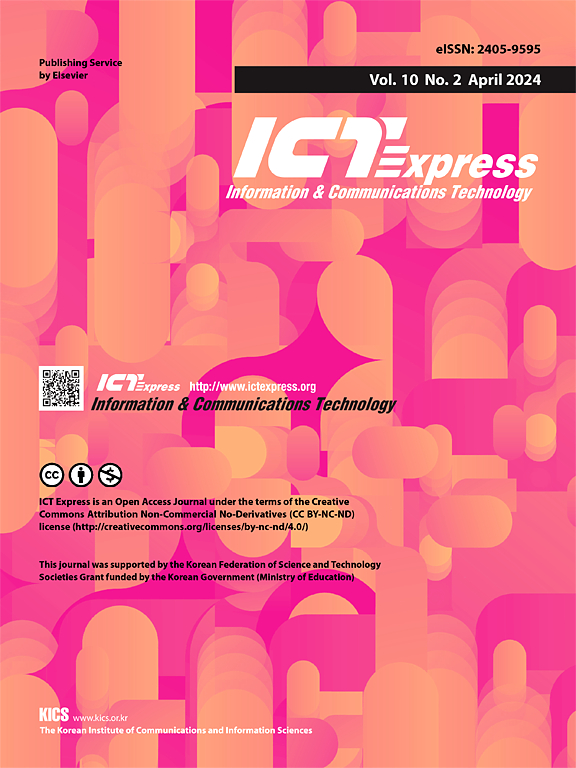Dynamic content-cached satellite selection and routing for power minimization in LEO satellite networks
IF 4.1
3区 计算机科学
Q1 COMPUTER SCIENCE, INFORMATION SYSTEMS
引用次数: 0
Abstract
Efficient delivery of content to areas where terrestrial Internet service is unavailable can be possible via content caching at low earth orbit (LEO) satellites. Cached content in several LEO satellites must be delivered via inter-satellite links (ISLs) with appropriate routing techniques. Until now, content caching and routing techniques have been optimized independently. To tackle this issue, the optimization of selecting a content-cached satellite and routing is jointly performed, using the example of Earth observation data cached across multiple satellites. In this paper, we first formulate a dynamic power minimization problem constrained by the queue stability of all LEO satellites, where the control variables are the selection of content-cached satellite and routing in every satellite. To solve this long-term time-averaged problem, we leverage Lyapunov optimization framework to transform the original problem into a series of slot-by-slot problems. Moreover, we prove that the average power consumption and the average queue backlog by the proposed algorithm can be upper-bounded via theoretical analysis. Finally, through extensive simulations, we demonstrate that our proposed algorithm surpasses existing independent content-retrieval algorithms in terms of power consumption, queue backlog, and fairness.
低轨道卫星网络中功率最小化的动态内容缓存卫星选择和路由
通过低地球轨道(LEO)卫星上的内容缓存,可以将内容有效地传送到地面互联网服务不可用的地区。在几个低轨道卫星上缓存的内容必须通过卫星间链路(isl)以适当的路由技术传送。到目前为止,内容缓存和路由技术都是独立优化的。为了解决这一问题,本文以跨多颗卫星缓存的地球观测数据为例,对选择内容缓存卫星和路由进行了联合优化。本文首先提出了一个以所有LEO卫星的队列稳定性为约束的动态功率最小化问题,其中控制变量为内容缓存卫星的选择和每颗卫星的路由。为了解决这个长期的时间平均问题,我们利用Lyapunov优化框架将原始问题转化为一系列逐槽问题。此外,通过理论分析证明了该算法的平均功耗和平均队列积压是上界的。最后,通过大量的模拟,我们证明了我们提出的算法在功耗、队列积压和公平性方面优于现有的独立内容检索算法。
本文章由计算机程序翻译,如有差异,请以英文原文为准。
求助全文
约1分钟内获得全文
求助全文
来源期刊

ICT Express
Multiple-
CiteScore
10.20
自引率
1.90%
发文量
167
审稿时长
35 weeks
期刊介绍:
The ICT Express journal published by the Korean Institute of Communications and Information Sciences (KICS) is an international, peer-reviewed research publication covering all aspects of information and communication technology. The journal aims to publish research that helps advance the theoretical and practical understanding of ICT convergence, platform technologies, communication networks, and device technologies. The technology advancement in information and communication technology (ICT) sector enables portable devices to be always connected while supporting high data rate, resulting in the recent popularity of smartphones that have a considerable impact in economic and social development.
 求助内容:
求助内容: 应助结果提醒方式:
应助结果提醒方式:


